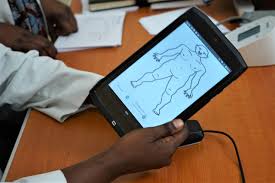A new study has shed light on who holds the greatest influence over Tanzania’s health financing system, revealing significant insights into how decisions are made on funding, resource allocation, and priority setting in the country’s health sector.
The research, conducted by Mwananchi Communications Ltd and health policy experts, found that the central government and major donors remain the key power players, leaving local communities and health facilities with limited say in how resources are used.
According to the study, a large share of Tanzania’s health budget comes from international development partners. These donors — including the Global Fund, USAID, and the World Bank — continue to set conditions that influence policy directions and spending priorities.
Meanwhile, the Ministry of Health and the Ministry of Finance play the most critical roles in deciding how funds are distributed across regions and programs. This means that local authorities, hospitals, and clinics often have to work with limited resources and little control over budgets.
“Our findings show that while Tanzania has made great strides in mobilizing health funds, decision-making power is still concentrated at the top,” said Salome Gregory, the lead researcher. “For the country to achieve universal health coverage, we need to strengthen community participation and ensure resources are used where they are needed most.”
Experts warn that this centralized approach can result in mismatches between funding priorities and actual needs on the ground. For example, rural health centers often face drug shortages and understaffing despite increased national health spending.
The study also highlighted the need for more transparency in budget planning and spending, as well as better accountability mechanisms to track whether funds reach frontline health workers and patients.
In response, the Tanzanian government says it is working on reforms to improve resource allocation and empower local health councils to have a stronger voice in decision-making. The Ministry of Health has pledged to roll out digital systems to track health financing flows more effectively and reduce leakages.
Health experts and civil society organizations are calling for a more inclusive health financing framework, one that balances the influence of donors with the needs of Tanzanian citizens.
If implemented well, these reforms could bring the country closer to its goal of universal health coverage by 2030, ensuring every Tanzanian has access to affordable and quality health services.



